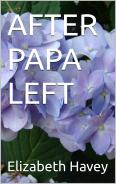
As a writer, I initially had no idea that using tropes was encouraged by editors and publishers. But as a reader, I had a different question, especially when finding books with similar plot lines. So let’s be specific, what exactly is a trope?
My history with the term began when Peggy Loftus Fink, a fellow member of Women’s Fiction Writers Association (WFWA), presented a discussion about tropes, the definition and the usage. Here are the basics:
A trope is a word (or words) used in a nonliteral sense to create a powerful image. If you say, “Chicago’s worker bees buzz around the streets,” you’re using a trope. Workers aren’t literally bees, but it suggests how fast they move. But that’s not enough.
Because there is another definition that many of us are more familiar with, one that’s definitely applicable to writers: TROPE: a common or clichéd plot device, idea, or theme used in a creative work. Yes!
To me….that is a troupe, and as a member of WFWA, the word and its use has been discussed frequently, stressing how tropes help in plotting, though recently, when reading the work of a new author, my ability to know the thrust of the plot was in some ways disconcerting. The author had used the exact same “tropes” I use in my WIP.
But as writers , we then remind ourselves…this is totally acceptable. There is no writing law against it. A trope is simply what it is: a common, often overused theme or device. And to clarify, here are some tropes we’ve all encountered when reading fiction or watching films:
a kidnaping reveals a lost relative; best friends become enemies over the same love interest; a marriage on the rocks reveals the difficult past of the wife, husband or both.
A few more: the decision to finally go back to one’s home town; finding out that a friend in one’s life is really part of family ie., found family. Going home again. Rape, kidnapping, robbery…scars, secrets which the hero or heroine has to overcome. The reinvention story, staring your main character: loss, goal, conflict, motivation, expectations. And always using TIME as a ticking bomb.
OTHER TROPES THAT OFTEN APPEAR IN STORY OR FILM
The revealed twin or orphan; the ticking time bomb, the hidden fatal illness…all can be considered tropes. But when writing, keep this in mind: a trope is more fluid and neutral than a plot element, and it certainly can be used in different ways in your story.
Tropes also help when creating blurbs to promote your fiction: kidnapping, found relative, marriage on the rocks, best friends turned to enemies, going back to your home town, lost family, reinvention story, scars and secretes, going home again.
FINAL THOUGHTS: HOW WRITERS CAN PLEASE READERS
Make sure that your use of a trope fits your story, that it helps you work toward your story goal. That’s why when creating your novel and its plot lines, you might hesitate at a certain point in your story: is this really my character’s goal? Do I want to go in an unexpected direction? Have I laid out personality traits in my MC that will support his deciding NOT to….but instead to …..
Because we all want to read something we were not prepared for; we all enjoy a clever plot twist, but one supported by what has come before, and thus a total surprise. YES, THAT IS THE WRITER’S GOAL. But…this must be your story, you GOAL, MOTIVATION and CONFLICT. Tropes are only there to flesh out a strong story line.
P.S. THE BEST WAY TO USE TROPES… allow them to fade or radically change: the kidnapping is stopped by the most unexpected character; the lost relative is your best friend’s husband and lives down the street; the character your reader has grown to hate is really the savior of your story.
Thanks for reading. P.S. My short novel, AFTER PAPA LEFT, is now available on Amazon: Kindle version (lavender flowers) or book version (green leaves).


